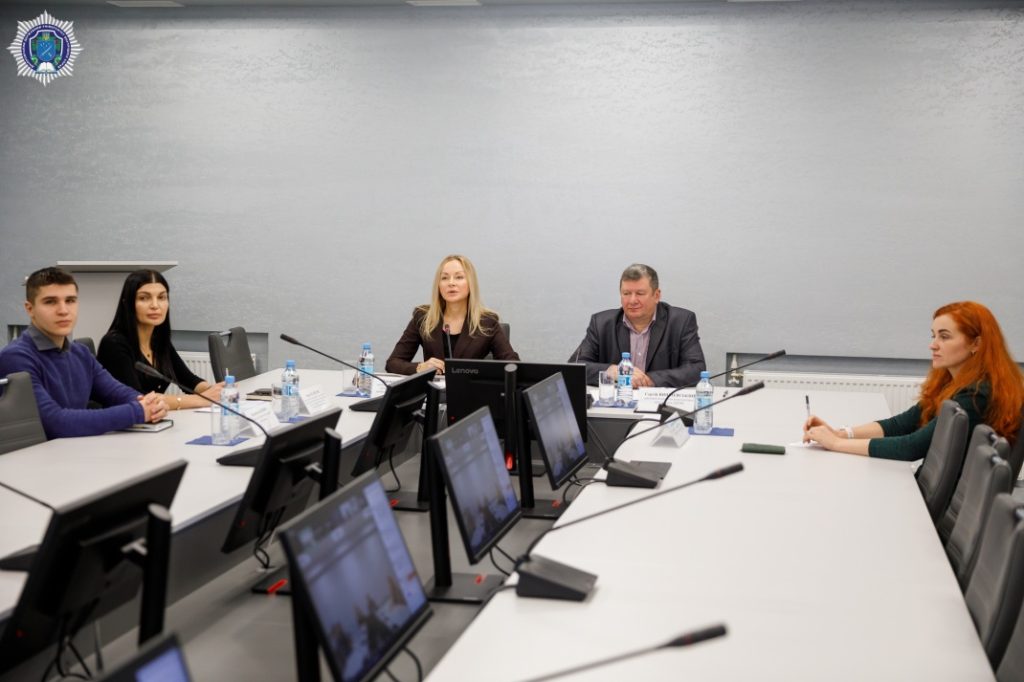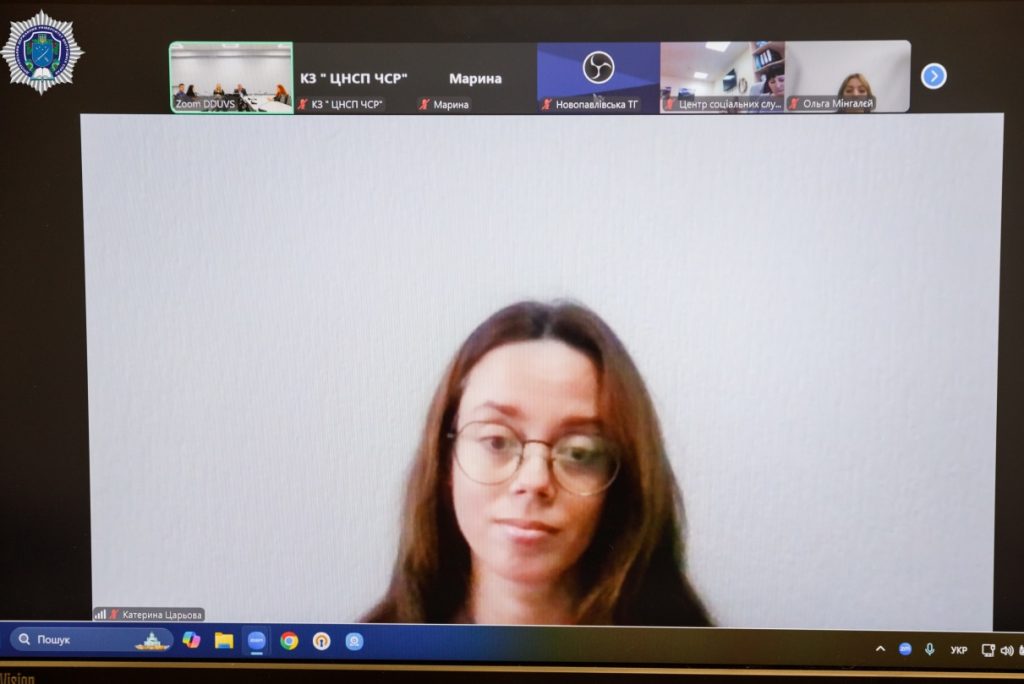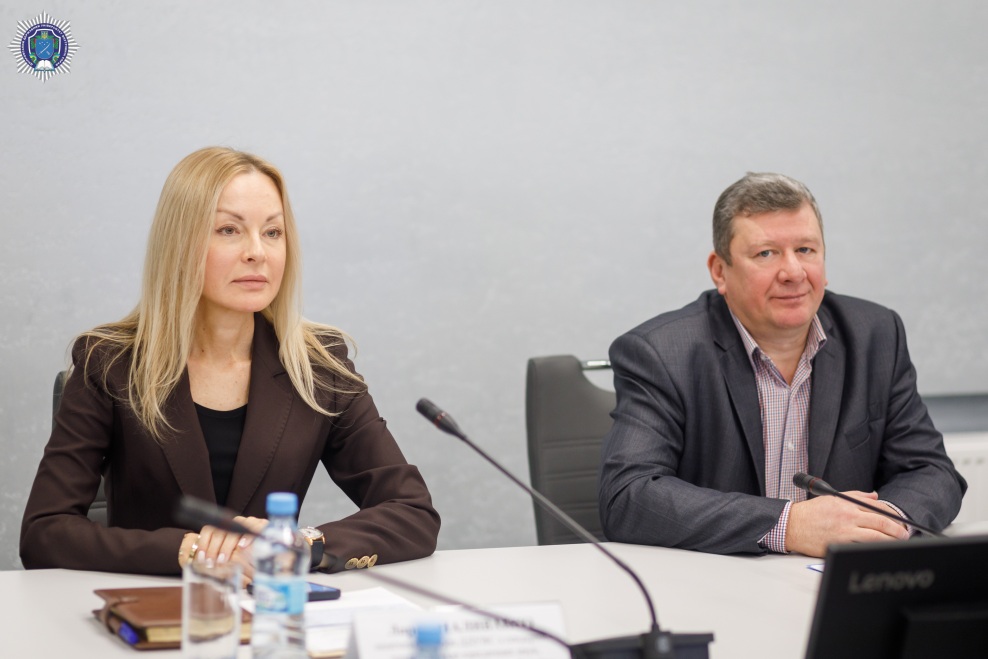A training session was held at Dnipro State University of Internal Affairs for specialists from amalgamated territorial communities of the Dnipropetrovsk region responsible for implementing programs for abusers.

The keynote speaker of the concluding event was Kateryna TSAROVA, a forensic expert in the Laboratory of Psychological, Linguistic, and Other Types of Research at the Dnipropetrovsk Research Institute of Forensic Examinations of the Ministry of Justice of Ukraine.

The training aimed to identify the causes and features of abuser behavior, analyze the psychological aspects of the interaction between the abuser and the victim, and explore effective solutions by developing skills in understanding the psychology of abusers.
Participants included DSUIA representatives: Larisa NALYVAIKO, Rector’s Assistant on Gender Issues, Doctor of Legal Sciences, Professor, Honored Lawyer of Ukraine; Serhii VYSHNEVSKYI, Head of the Psychological Support Department, Full Member of the National Psychological Association of Ukraine, and the Association of Higher Education Psychologists of Ukraine; Kateryna MITCHENKO, Senior Lecturer at the Department of Psychology, Sociology, and Pedagogy, Member of the Ukrainian Psychological Association, Expert in Combating Domestic Violence and Mobbing, and Practical Psychologist; and Vladyslav BIDNYAK, Psychologist in the Psychological Support Department.


The training was attended by over 140 participants, including social service workers, community police officers, psychologists, and other specialists.
The main topics focused on the superficial and real causes of abusive behavior, the psychology behind such actions, altering violent behavior, fostering a new non-aggressive behavior model, cultivating responsibility for one’s actions and their consequences, fulfilling parental duties, and eliminating discriminatory beliefs about the social roles and obligations of women and men.
The event provided an opportunity not only to acquire new knowledge but also for specialists working in the field of violence prevention to exchange professional experiences, shaping a shared understanding of effective solutions to this pressing issue.
— 296

